Key Themes
The following themes emerged from the 2018 community gatherings in ʔAq̓am (near Cranbrook, BC), ʔA·kisq̓nuk (near Windermere, BC), ʔA·kink̓umǂasnuqǂiʔit (near Grasmere, BC) and Yaqan Nukiy (near Creston, BC).
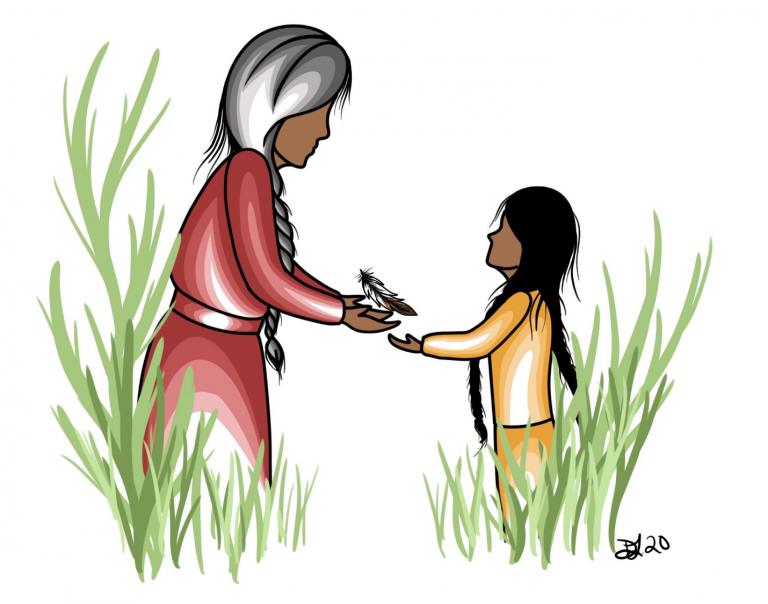
Connection & Belonging
“Most important part of a healthy person is to be connected to different people… Connectivity amongst members of the community; that’s where I’m trying to start from; foundation for a healthy community… Healthy community is getting together”
History & Ancestors
“What makes us strong, what has come through our roots… our word for ancestors means roots, and our strength comes from our ancestors. Our ancestors hold us together”
Purpose & Hope
“If you don’t have hope or you don’t know how to envision, you have a hard time feeling healthy”
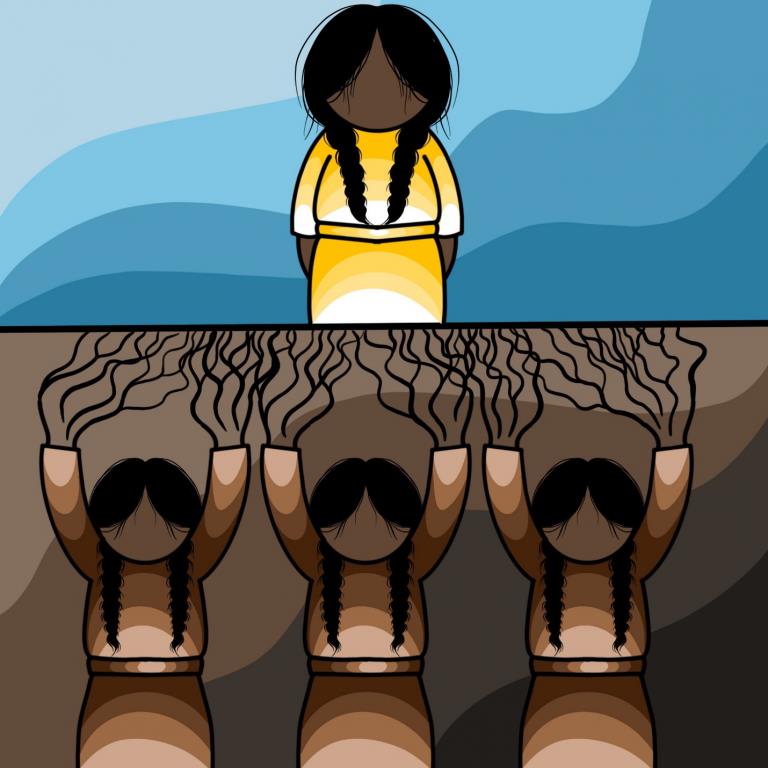
Genealogies & Familial Connections
“In community, and as a rule, culturally, family relations are understood at regular community gatherings when children are young… Gatherings help families know who belongs to what family and make those connections”
Family
“To have healthy communities we need healthy families and to have healthy families we need healthy individuals”
Children & Youth
“To have a healthy community we need to look after these [kids] and get them their spirit back… Helping the younger ones become who they’re supposed to become”
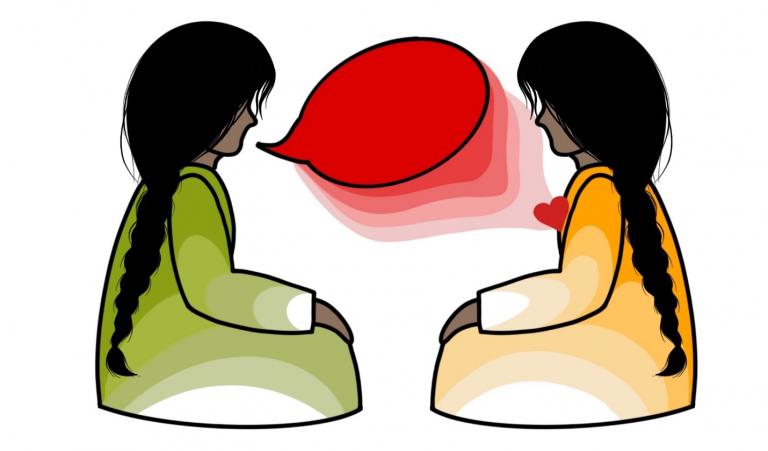
Language
“You listen, and we’ll tell you our stories. We’ll use our language. It’s good to hear that, it makes you feel better”
Culture
“There’s a certain time of year when I do think we have a healthy community: Winter. When we’re all visiting and we’re doing our work. I really look forward to that… It’s ours. It’s Ktunaxa. We define it, the structure of it, how it happens. We all contribute to it. There’s very clear boundaries, but they’re different, they’re Ktunaxa boundaries: who sings and when, how you carry yourself, what you bring, everyone has a role, everyone is participating, even the people that aren’t there are still participating… And there’s an understanding of that”
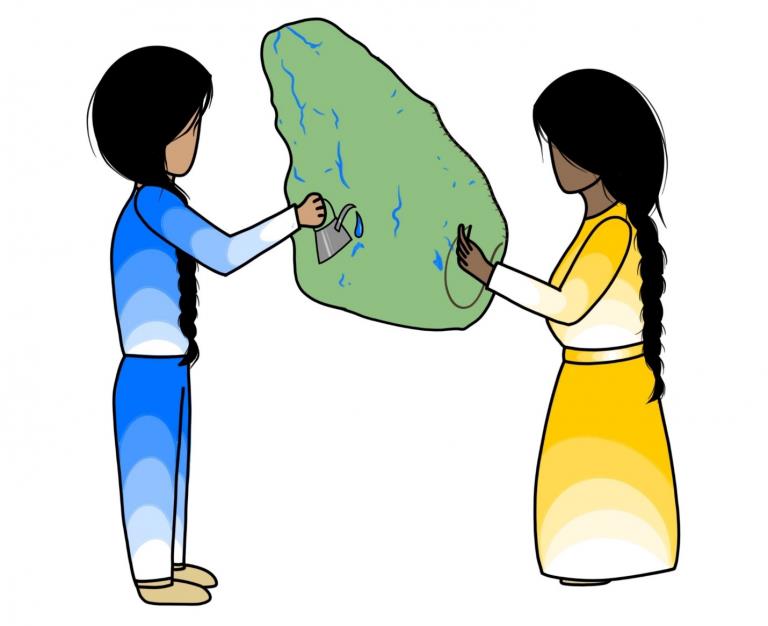
Identity
“Back in the day, you were Ktunaxa first—didn’t matter what community you were from; we all spoke the same language (some a little differently, but it didn’t matter)”
Pride
“A healthy community learns how to celebrate successes, in each other and be proud of what the community accomplishes together… Each individual to be honoured and held up for the things that each individual has to bring”
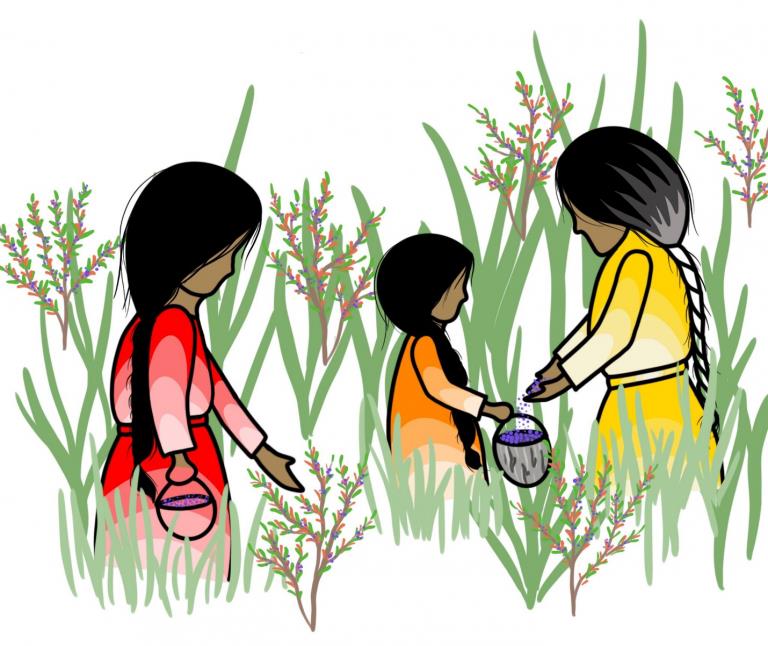
Food Sovereignty
“Berry picking—not just about the berries; also sharing and relationships”
Self-Determination
“We have to create healthy community for ourselves”
Respect
“A healthy community is open to anybody and everybody. And being able to speak to each other, not behind people’s backs”
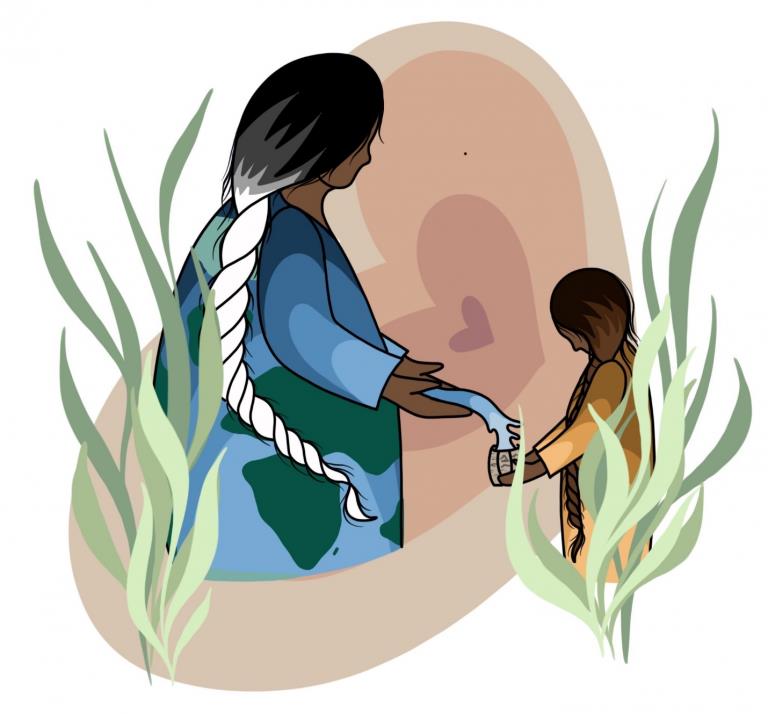
Forgiveness & Healing Connections
“We need to focus on the role of forgiveness on moving on. Especially when we have grievances with other people it’s not possible to move forward without addressing forgiveness. Sometimes we carry patterns on subconsciously, and we don’t even remember why we might be upset. The process of forgiving might cause us to remember, but we have to remember before we can move forward”
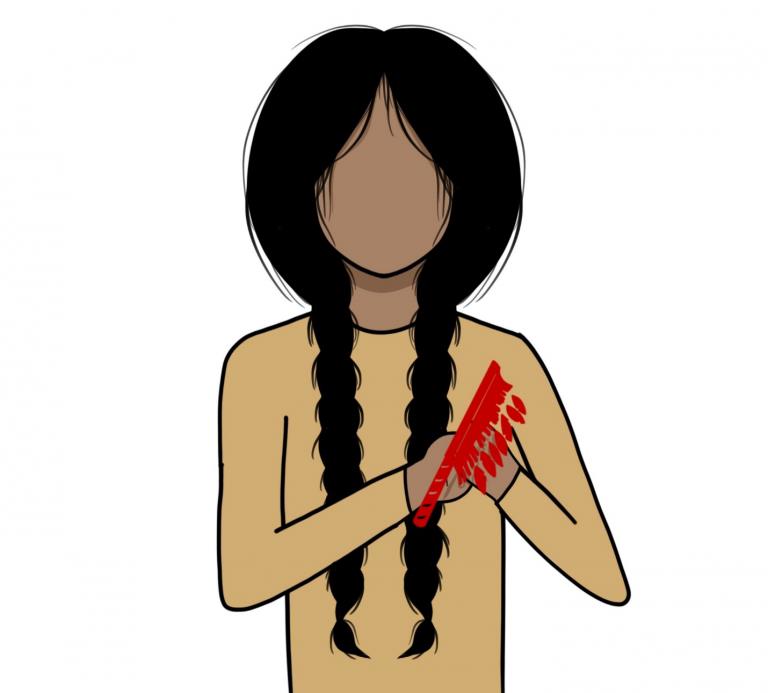
Spirituality & Ceremony
“A healthy community knows when ceremony is needed and when prayers are needed, and the prayers are honoured and answered”
Cultural Roles & Behaviours
“If we’re growing up not familiar with these responsibilities we may not create a functional community. That has an impact on community health as well”
